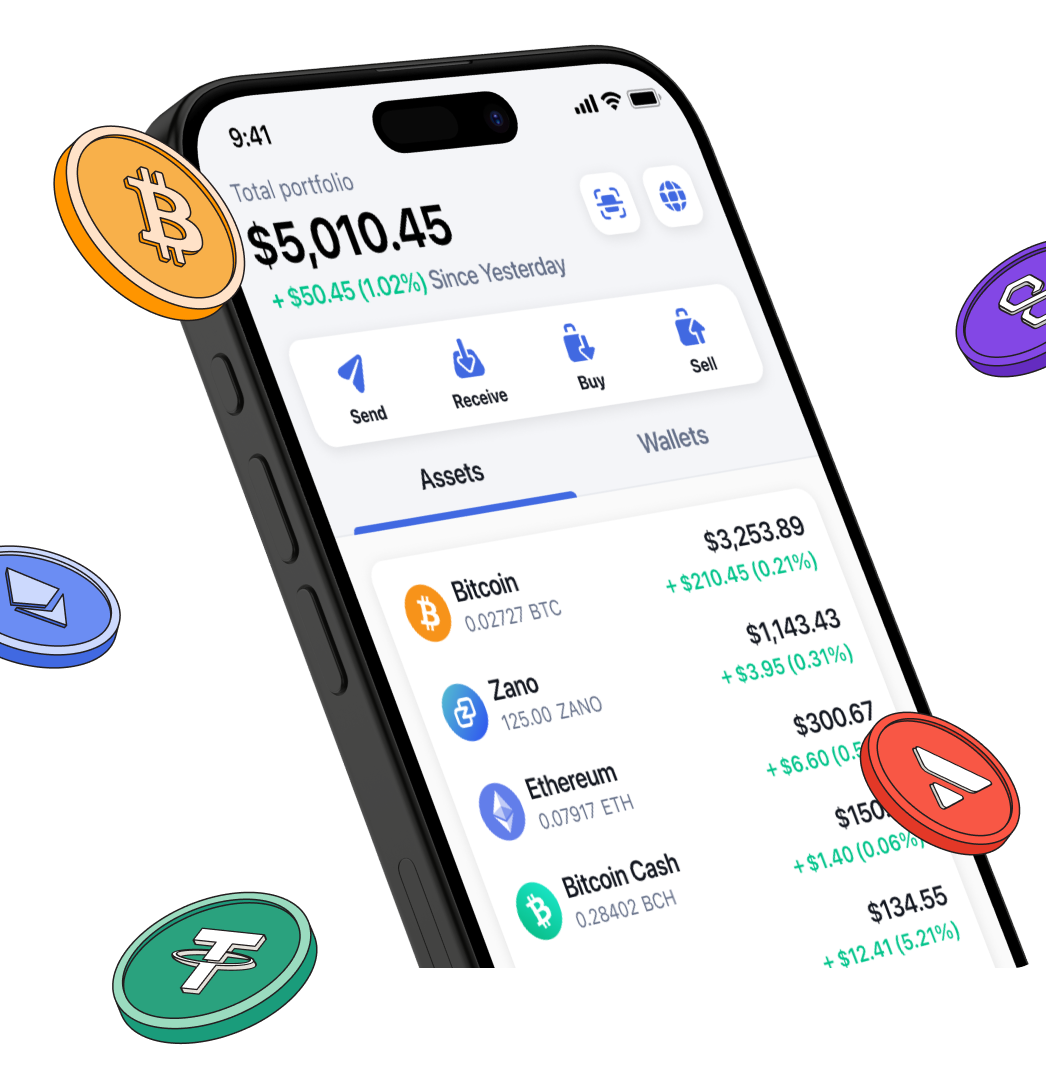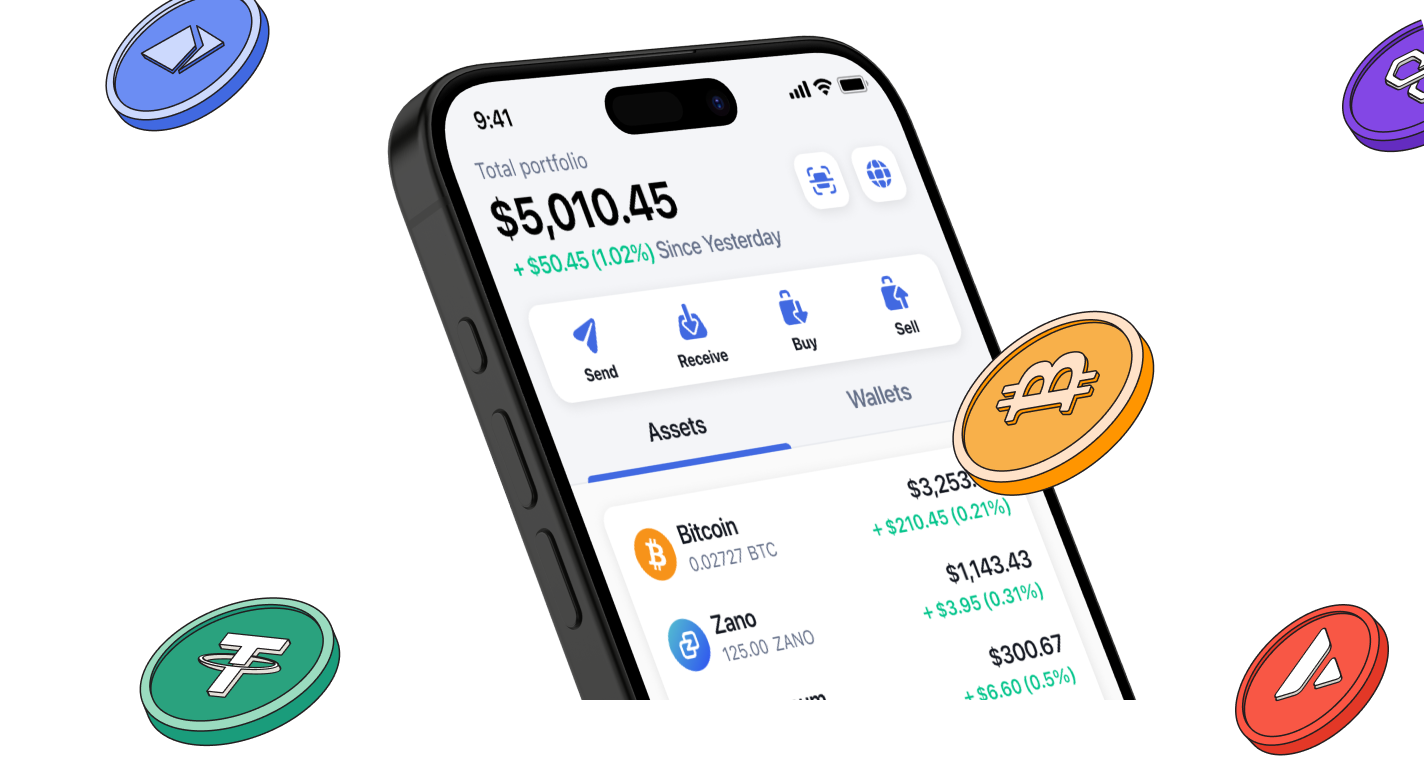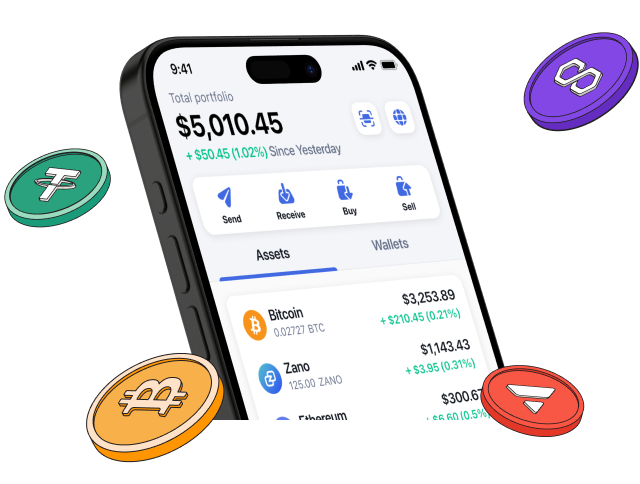What is Bitcoin OTC Trading?
Last updated

Table of Contents
Importance of Bitcoin OTC Trading
In the dynamic world of cryptocurrency, Bitcoin OTC trading plays a critical role, especially for institutional investors and high-net-worth individuals. Unlike typical exchange-based trading that happens on open platforms, OTC trading allows these large traders to execute significant transactions without impacting the market price too abruptly. This aspect of OTC trading is essential because large orders on public exchanges can lead to substantial price fluctuations due to the sudden increase in supply or demand.
Furthermore, OTC trading ensures a higher degree of privacy. Transactions are settled directly between two parties, often facilitated by an OTC broker, which means details of the trade aren’t broadcasted to the public market. This discretion not only protects the market from volatility but also shields traders from potential predatory behaviors seen in open markets.
How Bitcoin OTC Trading Works
The process of OTC trading in the Bitcoin world is markedly distinct from traditional exchange trading. It starts when a buyer or seller expresses their interest to an OTC broker who specializes in matching traders with large block orders. The broker sources potential counterparties from their network, ensuring that both parties' trading needs align effectively.
Once potential matches are found, the broker facilitates negotiations between the two parties, helping them agree on a price. After the price is agreed upon, the trade is executed directly between the parties without it being listed on any public exchange. This method minimizes market impact and maintains privacy. The trade itself can be settled in various ways, often involving a combination of wire transfers, Bitcoin wallets, and sometimes escrow services to safeguard the assets until the transaction completes.
For bilateral trades, the process involves direct negotiation and settlement between the buyer and seller, often with minimal broker intervention once the introduction is made. In cleared OTC trades, a clearinghouse might step in to handle the execution and settlement, adding an extra layer of security and trust to the transaction.
Learn about the differences between centralized exchanges and decentralized exchanges.
Benefits of Bitcoin OTC Trading
One of the primary benefits of Bitcoin OTC trading is the enhanced privacy it offers. Trades are not publicly recorded on the order books of exchanges, allowing participants to keep their transactions confidential. This is particularly valuable for large-scale investors who wish to avoid tipping their hand to the market, which can lead to price movements before the completion of a large trade. Additionally, OTC trading mitigates the risk of price slippage by locking in prices directly with a counterparty, rather than relying on the fluctuating prices of the open market.
Another significant advantage of OTC trading is the ability to move large quantities of Bitcoin without causing significant market disruptions. This is crucial for institutional investors whose large orders could otherwise influence the market price of Bitcoin unfavorably against their own trades. By facilitating transactions that might be too large for traditional exchanges, OTC markets help maintain more stable prices while ensuring that large transactions are executed smoothly and swiftly.
Challenges and Risks of Bitcoin OTC Trading
Despite its advantages, Bitcoin OTC trading is not without risks. One of the main challenges is counterparty risk, where one party may fail to fulfill their side of the transaction after the other party has already executed their obligations. This risk is somewhat mitigated by using trusted brokers and sometimes escrow services, but it can never be entirely eliminated. Regulatory considerations also pose a significant challenge, as the lack of transparency can attract scrutiny from regulatory bodies concerned about money laundering and other illegal activities.
Another issue facing Bitcoin OTC trading is the potential lack of liquidity and pricing transparency. Since these trades do not occur on public exchanges, it can be more difficult to ascertain if the agreed-upon price is competitive with the broader market. This requires parties to rely heavily on their brokers to provide fair pricing information. Additionally, the private nature of these trades means that less information is available for market analysts and other traders, which can affect overall market efficiency.
Learn more with What is Bitcoin Liquidity?. Also, learn about Bitcoin fraud and how to avoid common Bitcoin scams
Comparing OTC Trading with Exchange Trading
OTC trading and exchange trading serve different needs within the Bitcoin marketplace. While exchanges provide a high level of transparency and are ideal for traders dealing in smaller quantities, they may not be suitable for handling large transactions due to the risk of price impact and slippage. In contrast, OTC trading offers more privacy and the ability to execute large trades without the same immediate market impact. This makes it an ideal choice for high-net-worth individuals and institutions that need to move large amounts of Bitcoin discreetly.
However, the choice between OTC trading and exchange trading often comes down to the specific needs and strategies of the trader. For retail and smaller institutional traders, many exchanges offer sufficient liquidity and faster execution at a known market price, which can be more reassuring and practical. On the other hand, for those prioritizing discretion and minimizing market impact, OTC trading is clearly preferable. Each platform type has its own set of advantages and trade-offs, and the best choice depends on the trader’s objectives, trading volume, and sensitivity to market movements.
Key Players in the Bitcoin OTC Market
The Bitcoin OTC market is populated by a variety of key players, including specialized OTC brokers, private trading desks, and sometimes larger financial institutions that offer cryptocurrency trading solutions. OTC brokers are the linchpins in this market; they maintain vast networks of buyers and sellers and facilitate the matching and negotiation processes necessary for successful large-volume trades. These brokers often offer additional services, such as market insights and advisory, adding value for their clients beyond mere transaction facilitation.
Prominent examples of OTC trading desks include Circle Trade, itBit, and Genesis Trading, each known for handling massive volumes of cryptocurrency trades with a high degree of professionalism and security. These desks often operate globally, providing services across multiple jurisdictions while navigating the complex regulatory landscapes of different countries. This international approach not only extends their reach but also diversifies their client base and trading strategies.
Read more: Explore the Leading Institutional Bitcoin Exchanges.
Case Studies
Let’s consider two fictitious Bitcoin OTC case studies to illustrate the process and utility.
Selling
Imagine a large technology firm that needs to liquidate $50 million worth of Bitcoin as part of a strategic asset reallocation. The firm opts for an OTC trade to avoid significant market disruption and to maintain confidentiality. The OTC broker facilitates the trade over several days, using a strategy that minimizes price impact and secures a price close to the prevailing market rate throughout the transaction period. This example highlights the OTC market’s ability to handle large transactions discreetly and efficiently.
Buying
Imagine a high-net-worth individual looking to invest a substantial amount in Bitcoin during a period of significant market volatility. By working with an OTC broker, the individual is able to purchase a large amount of Bitcoin at a fixed, agreed-upon price, avoiding the slippage that would have occurred on a traditional exchange. This case illustrates the advantage of OTC trading in providing price stability and predictability, which is especially valuable during turbulent market conditions.
Future of Bitcoin OTC Trading
The future of Bitcoin OTC trading looks robust, driven by increasing institutional interest in cryptocurrencies and the need for discreet, large-volume transactions. As the cryptocurrency market matures, we can expect technological advancements to streamline OTC trading processes further, enhancing security and efficiency. Innovations such as smart contracts and decentralized finance (DeFi) platforms could potentially integrate with traditional OTC trading, providing even more secure and transparent mechanisms for executing and settling large trades.
Moreover, as regulatory frameworks for cryptocurrencies continue to develop, there will likely be a greater push towards formalizing OTC trading practices, potentially increasing transparency and reducing some of the current risks associated with counterparty trust. This evolution will help attract more institutional investors to the crypto space, ensuring that OTC trading remains a critical component of the cryptocurrency trading landscape.
Summary
Bitcoin OTC trading serves as a vital component of the cryptocurrency market, catering especially to the needs of high-volume traders and institutional investors who require discretion and minimal market impact in their transactions. It offers numerous benefits, including privacy, price stability, and the ability to handle large transactions without the typical drawbacks of traditional exchanges. While there are risks and challenges associated with OTC trading, such as counterparty risk and regulatory concerns, the advantages often outweigh these issues for those who need the services OTC markets provide.
Learn more about Bitcoin fundamentals and explore its advantages with The Benefits of Bitcoin. Dive deeper in Bitcoin's origin story - from an idea to a global financial revolution. Discover Bitcoin's price history and price potential
Frequently Asked Questions
How does Bitcoin OTC trading differ from exchange trading?
Bitcoin OTC trading involves direct transactions between two parties, bypassing the public order books of exchanges. This method offers greater privacy and less market impact, particularly beneficial for large-volume trades.
Who typically uses Bitcoin OTC trading services?
Bitcoin OTC trading is commonly used by institutional investors, high-net-worth individuals, and other entities that need to execute large transactions that might otherwise move the market price against them on a public exchange.
Is Bitcoin OTC trading safe?
While Bitcoin OTC trading involves risks such as counterparty risk and potential lack of regulatory oversight, it is generally considered safe if conducted through reputable and trustworthy brokers. Many OTC brokers use advanced security measures and provide escrow services to enhance the safety of transactions.
Can anyone participate in Bitcoin OTC trading?
While technically anyone can engage in OTC trading, it is most suitable for parties intending to trade large amounts of Bitcoin due to the setup and costs involved. Smaller traders might find better accessibility and liquidity on traditional exchanges.
How are prices determined in Bitcoin OTC trading?
Prices in Bitcoin OTC trading are typically negotiated between the buyer and seller with the assistance of an OTC broker. The broker may provide guidance based on current market conditions, historical data, and their own network's liquidity.
Related guides
Start from here →
What is a DEX?
A decentralized exchange (DEX) is a type of exchange that specializes in peer-to-peer transactions of cryptocurrencies and digital assets. Unlike centralized exchanges (CEXs), DEXs do not require a trusted third party, or intermediary, to facilitate the exchange of cryptoassets.

What is a DEX?
A decentralized exchange (DEX) is a type of exchange that specializes in peer-to-peer transactions of cryptocurrencies and digital assets. Unlike centralized exchanges (CEXs), DEXs do not require a trusted third party, or intermediary, to facilitate the exchange of cryptoassets.

How do I buy Bitcoin?
A beginner-friendly guide to buying Bitcoin step by step, with simple explanations and common options.

How do I buy Bitcoin?
A beginner-friendly guide to buying Bitcoin step by step, with simple explanations and common options.

How do I sell bitcoin?
Learn how to sell bitcoin into local currency safely.

How do I sell bitcoin?
Learn how to sell bitcoin into local currency safely.

How does crypto exchange work?
How safe is it to store your crypto on centralized exchanges?

How does crypto exchange work?
How safe is it to store your crypto on centralized exchanges?

What is a brokerage?
Dive into the essentials of what a brokerage is in the cryptocurrency context, highlighting its role, advantages, and how it contrasts with exchanges, to aid investors in navigating the trading landscape.

What is a brokerage?
Dive into the essentials of what a brokerage is in the cryptocurrency context, highlighting its role, advantages, and how it contrasts with exchanges, to aid investors in navigating the trading landscape.

What is a CEX?
Learn about CEXs, the differences between them and DEXs, and whether they’re safe to use.

What is a CEX?
Learn about CEXs, the differences between them and DEXs, and whether they’re safe to use.
STAY AHEAD IN CRYPTO
Stay ahead in crypto with our weekly newsletter delivering the insights that matter most
Weekly crypto news, curated for you
Actionable insights and educational tips
Updates on products fueling economic freedom
No spam. Unsubscribe anytime.



Start investing safely with the Bitcoin.com Wallet
Over wallets created so far
Everything you need to buy, sell, trade, and invest your Bitcoin and cryptocurrency securely

© 2026 Saint Bitts LLC Bitcoin.com. All rights reserved



